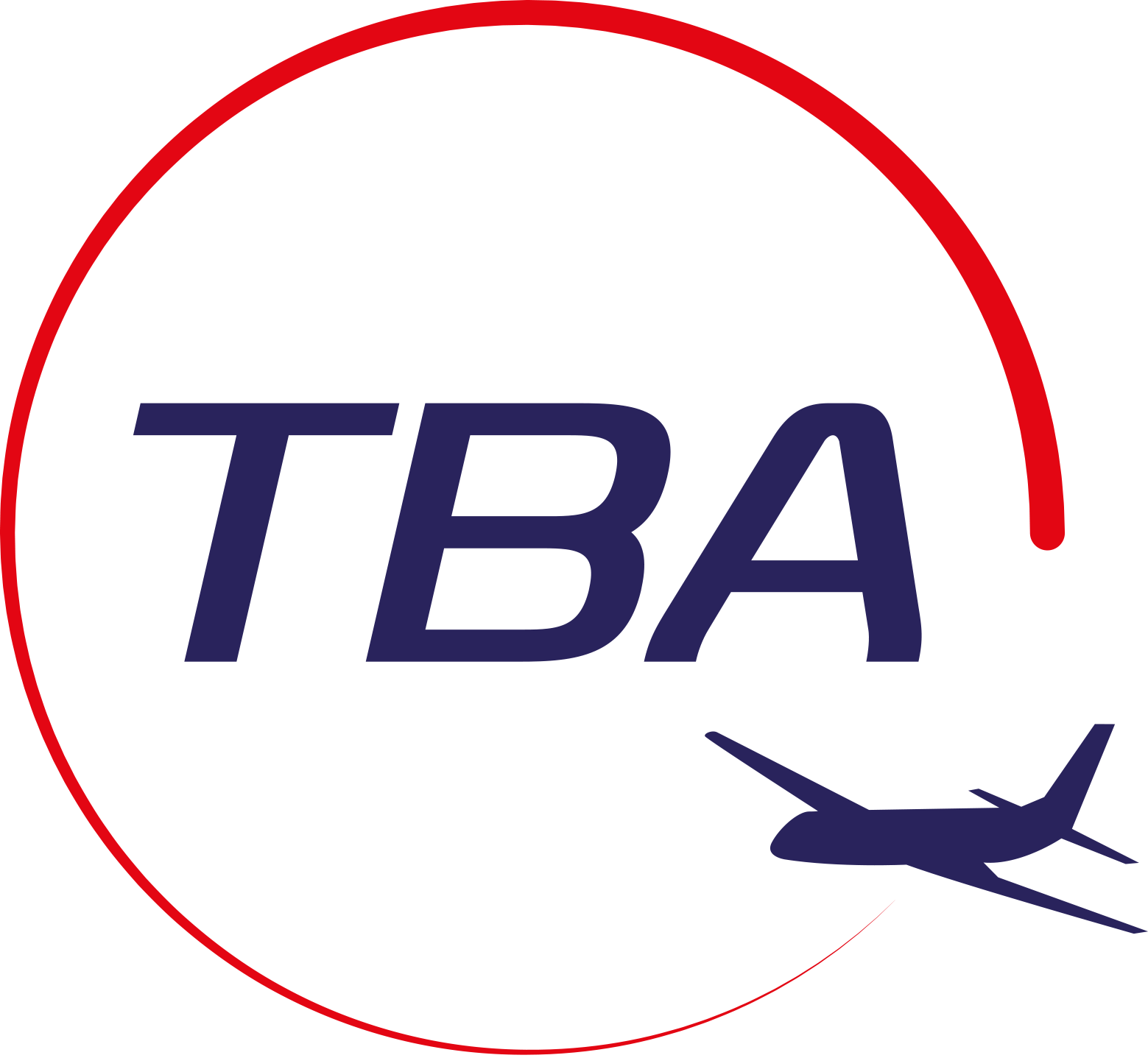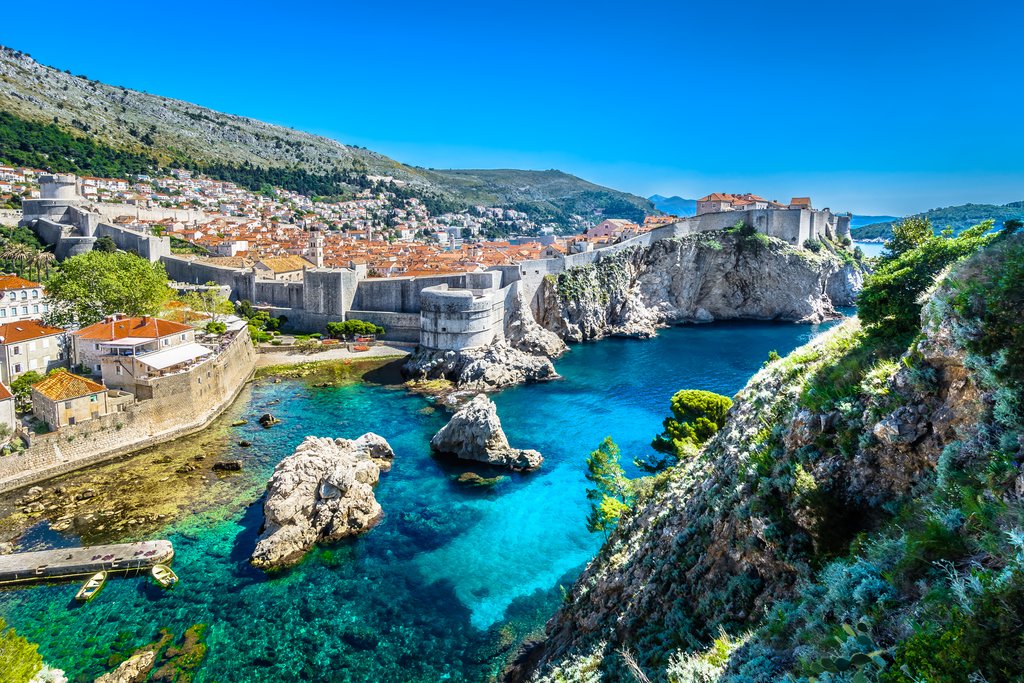
Research and knowledge are the first steps for Croatia Travel Business Assistance. Here is a fact file for France to get you started. Contact us if you are looking to start a business in or expand your market to France. We have consultants ready to help you on the ground in France.
Overcome language and cultural barriers effortlessly – Schedule your complimentary consultation call with Travel Business Assistance today.
Basic Facts
Origin of the Name “Croatia”:
The name “Croatia” is derived from “Hrvat,” the native term for Croats, and “Hrvatska” is the Croatian name for the country. The origin of the name “Hrvat” remains uncertain, but it is believed to have Slavic roots. One theory suggests that it could be related to the ancient Iranian word “Horoathos,” which some scholars link to the migration of Slavic tribes that later settled in the region. This connection stems from the ancient ties between early Slavs and Iranian tribes.
Croatia’s Flag:

The Croatian flag consists of three horizontal stripes in red, white, and blue, which are Pan-Slavic colours. These colours symbolize Slavic unity and have been associated with other Slavic nations as well. The flag also features the Croatian coat of arms in the centre. The coat of arms is a distinctive shield, divided into 25 red and white squares, which represents Croatia. Above the shield are five smaller shields representing different historical regions of Croatia: oldest known shield of Croatia, Dubrovnik, Dalmatia, Istria, and Slavonia.
Geography & Location:
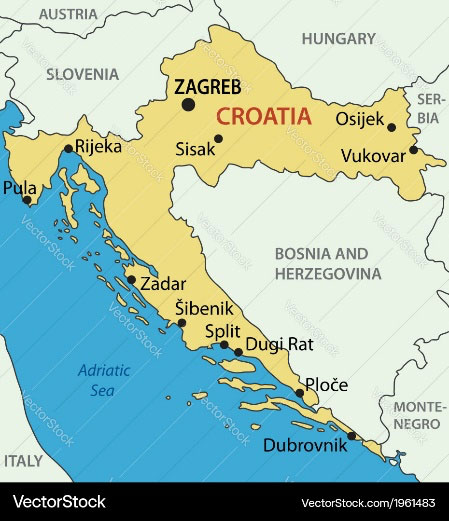
Croatia is a Central European and Mediterranean country, strategically positioned at the crossroads of Central Europe, Southeast Europe, and the Mediterranean. It is bordered by Slovenia to the northwest, Hungary to the northeast, Serbia to the east, Bosnia and Herzegovina to the southeast, Montenegro to the southeast, and the Adriatic Sea to the west. The country is known for its stunning coastline, featuring over 1,000 islands, islets, and reefs.
Capital:
Zagreb
Population:
Approximately 3.9 million (2024)
Area:
56,594 square kilometres (21,851 square miles)
Official Language:
Croatian
Currency:
Euro (EUR)
Time Zone:
Central European Time (CET) UTC+1
Daylight Saving Time (CEST) UTC+2
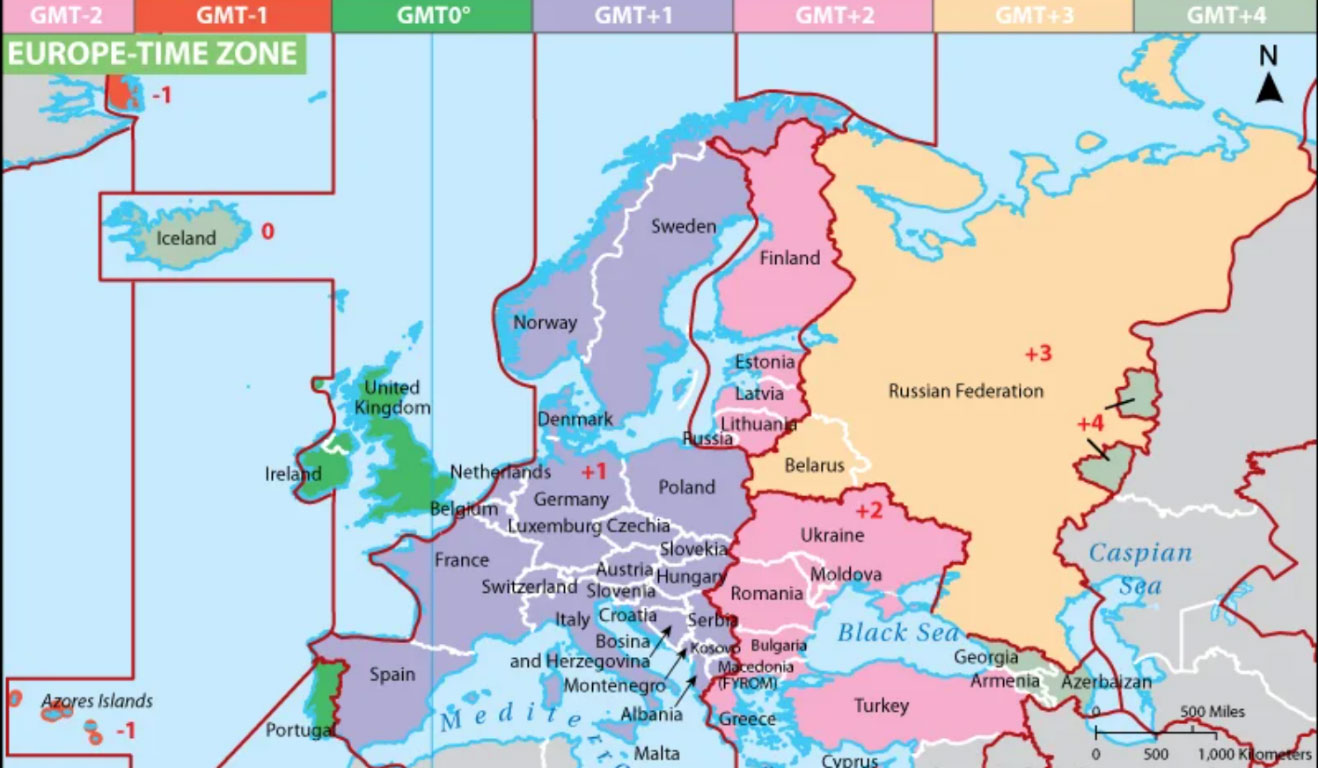
International Dialling Code:
+385
Major Airports:
- Franjo Tuđman Airport (ZAG), Zagreb
- Split Airport (SPU), Split
- Dubrovnik Airport (DBV), Dubrovnik
- Zadar Airport (ZAD), Zadar
- Pula Airport (PUY), Pula
- Rijeka Airport (RJK), Rijeka
Climate:
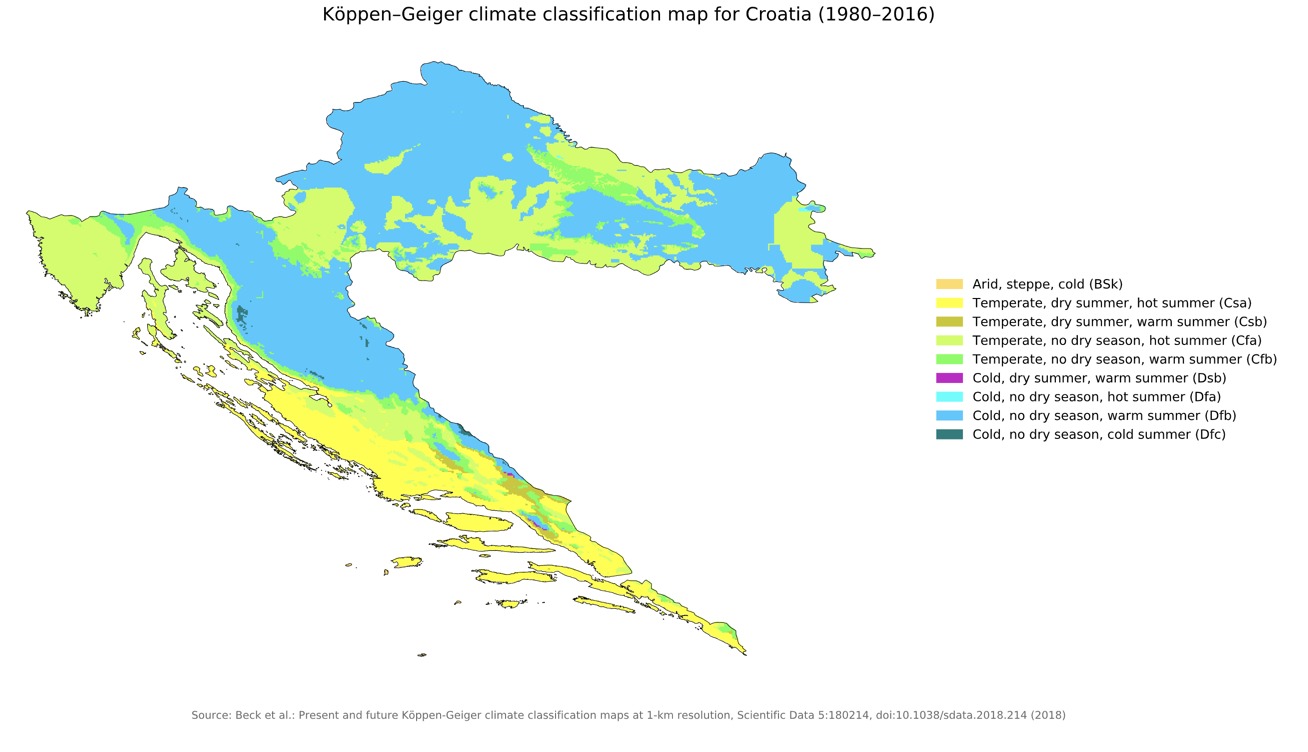
Croatia has a diverse climate. The coastal regions enjoy a Mediterranean climate with hot, dry summers and mild, wet winters. Inland regions experience a continental climate, characterized by hot summers and cold, snowy winters. The mountainous areas in the Dinaric Alps have an alpine climate, making them popular for winter sports.
Major Cities:
Zagreb
The capital and largest city, Zagreb is the political, economic, and cultural heart of Croatia, known for its historic architecture, museums, and vibrant cultural scene.
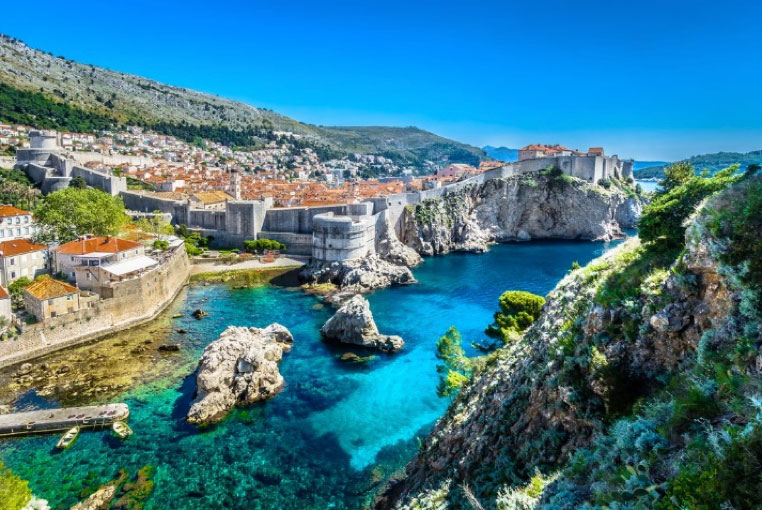
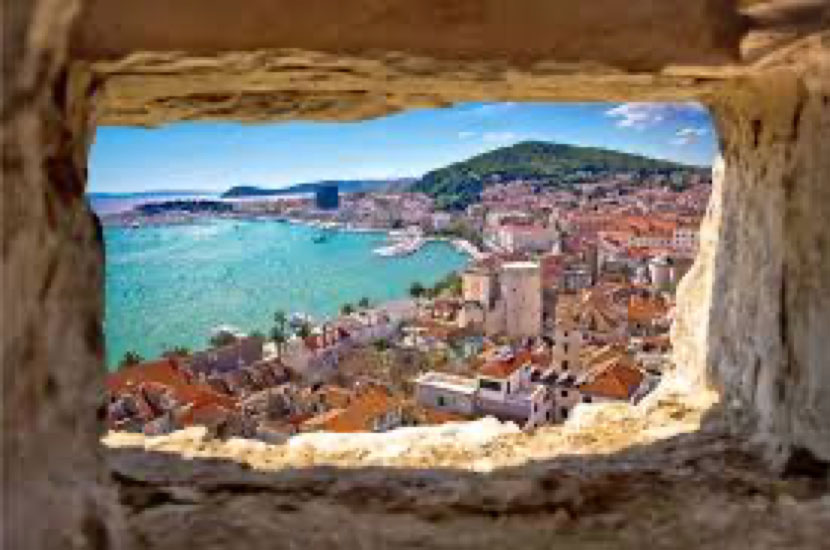
Split
Croatia’s second-largest city, Split is famous for Diocletian’s Palace, a UNESCO World Heritage site, and its lively waterfront promenade.
Dubrovnik
Known as the “Pearl of the Adriatic,” Dubrovnik is a UNESCO World Heritage site renowned for its well-preserved medieval architecture and stunning coastal views.
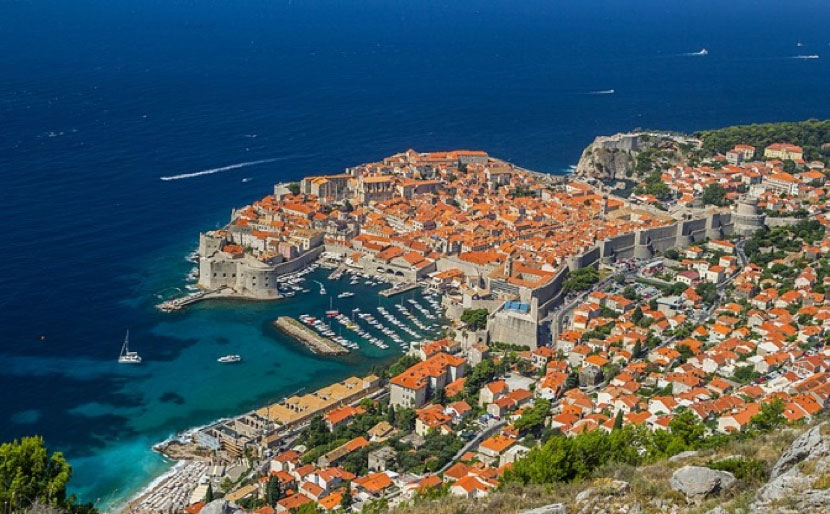
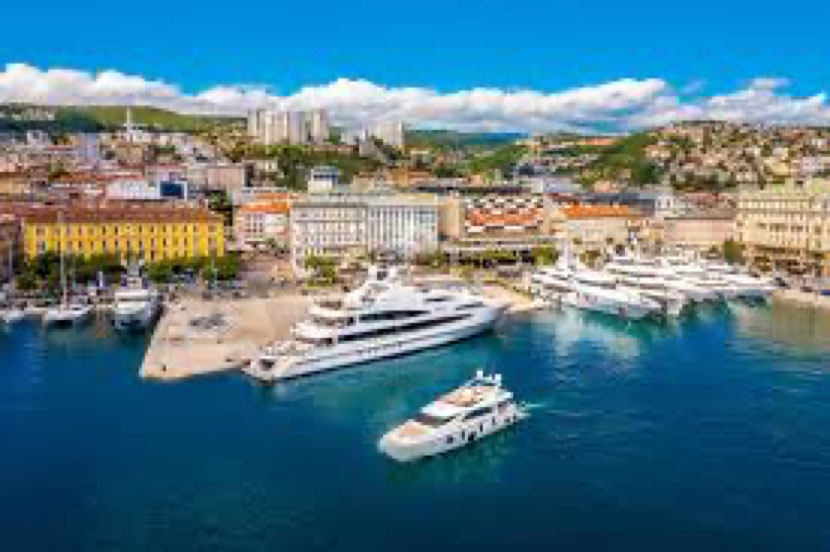
Rijeka
A major seaport and industrial hub, Rijeka is also known for its annual carnival and cultural diversity.
Osijek
Located in the eastern region of Slavonia, Osijek is known for its baroque architecture, vibrant university life, and proximity to nature reserves.
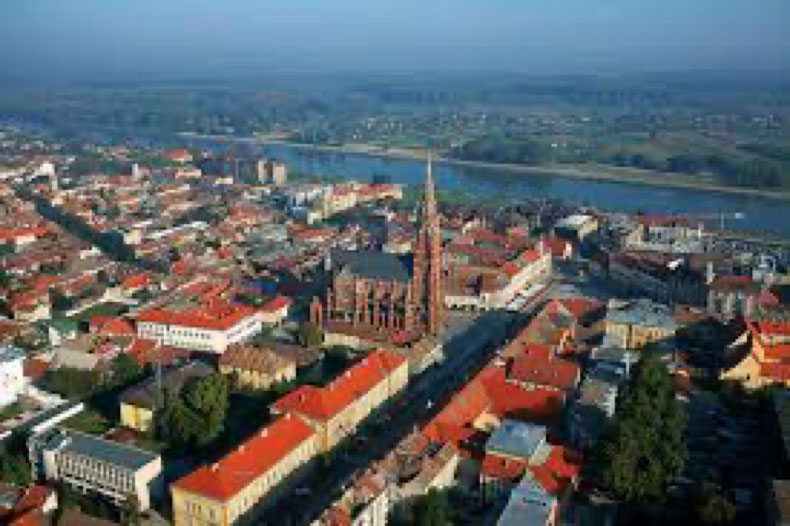
Zagreb: The Capital of Croatia
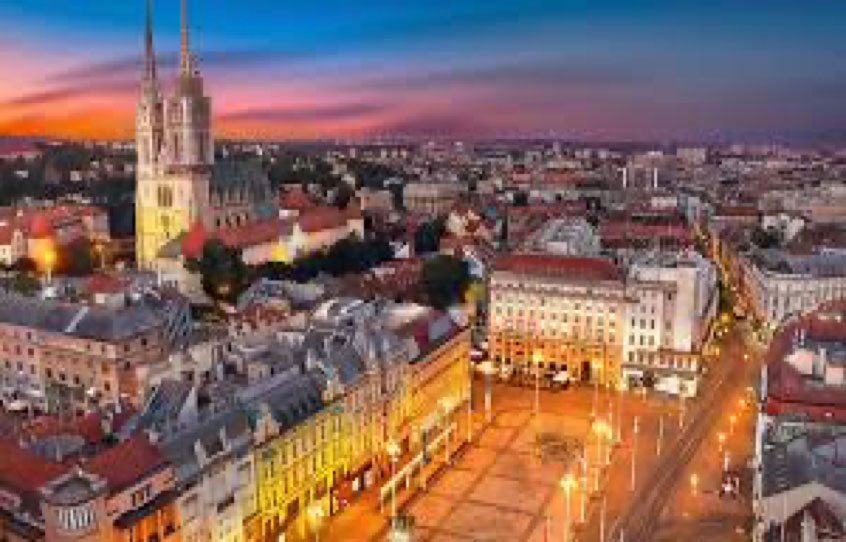
Zagreb is Croatia’s capital and largest city, serving as the nation’s political, cultural, and economic hub. Located in the northwestern part of the country, along the Sava River, Zagreb combines a rich history with modern infrastructure, making it an attractive destination for both tourists and business professionals.
History and Heritage:
Zagreb’s history dates to Roman times, but its development as a city began in the medieval period with the merging of two settlements—Kaptol and Gradec. These areas now form the historic Upper Town (Gornji Grad), where visitors can explore landmarks like the Zagreb Cathedral and St. Mark’s Church. Despite its historical roots, Zagreb has grown into a vibrant modern capital.
Business in Zagreb:
Zagreb is the economic powerhouse of Croatia, contributing over 30% of the country’s GDP. It is home to major industries, including finance, manufacturing, telecommunications, and technology. As Croatia’s leading business centre, Zagreb attracts both domestic and international companies.
Key Insights for Doing Business in Zagreb:
- Strategic Location: Zagreb’s position at the crossroads of Central and Southeastern Europe makes it a strategic hub for trade and logistics. Its proximity to other European capitals enhances its appeal as a regional business centre.
- Growing Startup Ecosystem: The city has a burgeoning tech and startup scene, supported by a well-educated workforce and initiatives like the Zagreb Innovation Centre. The city is increasingly recognized as a regional tech hub, particularly in software development and IT services.
- Infrastructure: Zagreb boasts modern infrastructure, including Franjo Tuđman Airport, which connects the city to major European and international destinations. Its well-developed road and rail networks further enhance its role as a business gateway to the Balkans.
- Business-Friendly Environment: Zagreb offers various incentives for foreign investors, including tax breaks, subsidies for job creation, and benefits in special economic zones. The city also benefits from Croatia’s EU membership, ensuring regulatory alignment with European standards.
- Challenges: Despite improvements, bureaucratic inefficiencies and a slow judicial system can present challenges for businesses operating in Zagreb. Investors should be prepared for potential delays in legal processes and administrative procedures.
Overall, Zagreb offers a mix of opportunities and challenges for businesses, with its strategic location, skilled workforce, and growing tech scene positioning it as a key player in Southeast Europe’s economy.
Government:
Parliamentary Republic, with President serving as Head of State and Prime Minister as Head of Government.
Religion:
Predominantly Roman Catholic (approximately 86%), with smaller communities of Orthodox Christians, Muslims, and Protestants.
Economy:
Croatia has a mixed economy, with significant contributions from tourism, shipbuilding, agriculture, and manufacturing. The country is known for its wine production, olive oil, and seafood, particularly along the Adriatic coast. Tourism plays a crucial role in the economy, with visitors drawn to its historic cities, stunning coastline, and natural parks.
Tourist Attractions:
- Plitvice Lakes National Park: A UNESCO World Heritage site, famous for its terraced lakes and waterfalls surrounded by lush forests.
- Dubrovnik Old Town: Enclosed by medieval walls, this historic city is a popular filming location and offers stunning views of the Adriatic Sea.
- Hvar Island: Known for its beautiful beaches, lavender fields, and vibrant nightlife, Hvar is a popular destination for both relaxation and adventure.
- Krka National Park: Renowned for its waterfalls and crystal-clear lakes, Krka offers scenic walking trails and opportunities for swimming.
- Istria Peninsula: This region is famous for its picturesque coastal towns, hilltop villages, and culinary delights, including truffles and fine wines.
Cultural Highlights:
- Folk Traditions: Croatia has a rich heritage of folk music, dance, and costume, particularly in rural areas. Traditional festivals and events celebrate these cultural expressions.
- Cuisine: Croatian cuisine varies by region, with Mediterranean influences along the coast and more hearty, Central European dishes inland. Popular dishes include Peka (meat or seafood cooked under a bell-shaped lid), Sarma (cabbage rolls), and Štrukli (a pastry filled with cheese).
Transportation:
- Road: Croatia boasts a well-developed road network, including modern motorways that connect major cities and tourist destinations.
- Rail: The rail network links major cities and regions, though services may be slower than in some Western European countries.
- Ferries: Extensive ferry services connect the mainland to various Adriatic islands, making island hopping a popular activity.
- Public Transport: Zagreb and other major cities offer efficient public transport systems, including buses and trams.
Visas:
- EU/EEA Citizens: No visa required.
- Other Nationalities: Visa requirements vary by country. Croatia is part of the Schengen Area, so Schengen visa regulations apply.
Health & Safety:
- Healthcare: Croatia has a well-established healthcare system with hospitals and clinics in major cities. EU citizens can use the European Health Insurance Card (EHIC) for emergency treatment.
- Safety: Croatia is considered a safe country for travellers, with low crime rates. Standard precautions should be taken, particularly in crowded tourist areas.
Electricity:
230V, 50Hz. Plug types C and F are used.
Best Time to Visit:
The best time to visit Croatia is during the late spring (May-June) and early autumn (September-October), when the weather is pleasant, and the crowds are smaller. July and August are peak tourist months, with hot weather and busy beaches.
Emergency Numbers:
- Police: 192
- Fire Department: 193
- Ambulance: 194
- Emergency Services (general): 112
Cultural Etiquette:
- Greetings: A firm handshake is the common greeting. Among friends, kissing on the cheek (two times) is customary.
- Language: While Croatian is the official language, English is widely spoken, especially in tourist areas and among the younger population.
- Tipping: Tipping is appreciated but not mandatory. In restaurants, it is customary to round up the bill or leave a 10% tip.
Key Points in Croatia’s History
- Early History: The region of present-day Croatia has been inhabited since prehistoric times, with evidence of Neolithic cultures and Illyrian tribes. It became part of the Roman Empire in the 1st century BC, and many Roman ruins remain today.
- Medieval Period: Following the fall of the Roman Empire, Slavic tribes settled in the area in the 7th century. The first Croatian dukedom was established in the 9th century, and in 925, Tomislav was crowned as the first king of Croatia, marking the foundation of the Croatian Kingdom.
- Union with Hungary: In 1102, Croatia entered a personal union with Hungary, known as the Pacta Conventa, retaining significant autonomy under Hungarian rule.
- Ottoman Threat: During the 15th and 16th centuries, Croatia was a frontier region between the Habsburg Empire and the expanding Ottoman Empire. The Battle of Krbava Field in 1493 and the Battle of Mohács in 1526 were significant in the struggle against the Ottomans.
- Habsburg Rule: After the Ottoman threat receded, Croatia became part of the Habsburg Monarchy, which later evolved into the Austro-Hungarian Empire. This period saw the development of a distinct Croatian identity and a revival of the Croatian language and culture.
- World War I and Yugoslavia: Following the collapse of the Austro-Hungarian Empire after World War I, Croatia joined the Kingdom of Serbs, Croats, and Slovenes (later Yugoslavia). Tensions between different national groups led to significant political instability.
- World War II: During World War II, Croatia was occupied by Nazi Germany and Fascist Italy, with a puppet state established under the Ustaše regime. The period was marked by atrocities and widespread resistance, culminating in Croatia’s liberation in 1945.
- Socialist Yugoslavia: After the war, Croatia became one of the six republics of socialist Yugoslavia under Josip Broz Tito. The post-war period saw economic development and modernization, but also political repression.
- Independence: In 1991, Croatia declared independence from Yugoslavia, leading to the Croatian War of Independence. The war ended in 1995 with the signing of the Dayton Agreement, and Croatia achieved full sovereignty.
- EU Membership: Croatia joined the European Union in 2013, marking a significant milestone in its post-independence development. The country has since become a popular tourist destination and a growing economy within the EU.
Fun Things to Do in Croatia
- Croatia is an adventure waiting to happen, with a rich mix of natural beauty, history, and vibrant culture. Begin your journey by island-hopping along the stunning Adriatic coast. Explore Hvar, known for its lavender fields and lively nightlife, or visit Korčula, the birthplace of Marco Polo, where you can wander through medieval streets and sample local wines. In Split, marvel at Diocletian’s Palace, a UNESCO World Heritage site, and then relax on the famous Zlatni Rat beach on Brač Island.
- For nature enthusiasts, a visit to Plitvice Lakes National Park is a must. Walk the wooden pathways over turquoise lakes and cascading waterfalls, or venture into the less-crowded Krka National Park, where you can swim beneath the Skradinski Buk falls. In Istria, explore the ancient Roman amphitheatre in Pula or go truffle hunting in the Motovun forest.
- Dive into the rich history of Dubrovnik by walking along its ancient city walls, offering breathtaking views of the Adriatic and the iconic, red-roofed old town. For an adrenaline rush, take a kayaking tour around the city walls or go cliff diving from the rocky beaches below. The capital, Zagreb, offers a different vibe with its vibrant street art, lively markets, and museums like the quirky Museum of Broken Relationships.
- Don’t miss the opportunity to sail through the stunning Kornati Archipelago, a paradise for sailors and divers, or visit the serene Mljet National Park, where you can bike around saltwater lakes. Foodies will love sampling Croatia’s delicious seafood, from grilled octopus to black risotto, and sipping on local wines in the wine regions of Pelješac and Istria.
- Whether you’re exploring ancient ruins, soaking up the sun on a secluded beach, or indulging in world-class cuisine, Croatia promises a fun-filled adventure at every turn.
Doing Business in Croatia
Ease of Doing Business Score:
According to the World Bank’s last published Ease of Doing Business report in 2020, Croatia ranked 51st out of 190 economies. The country has been recognized for its efforts to simplify regulatory processes, but challenges remain in areas such as dealing with construction permits and enforcing contracts.
Why Invest in Croatia?
- Strategic Location:
Croatia’s geographical position at the crossroads of Central and Southeast Europe makes it a strategic entry point to the European Union and neighbouring markets in the Balkans. Its proximity to key European markets provides excellent opportunities for businesses looking to expand in the region. - EU Membership:
As a member of the European Union since 2013, Croatia offers access to a market of over 450 million people. EU membership also means that Croatia follows EU regulations and standards, providing a stable and predictable legal environment for investors. - Growing Tourism Sector:
Croatia is a top tourist destination, with a booming tourism industry that contributes significantly to its GDP. This sector offers investment opportunities in hospitality, infrastructure, and related services. The country’s natural beauty, including its coastline, islands, and historical sites, continues to attract millions of visitors annually. - Skilled Workforce:
Croatia has a well-educated and multilingual workforce, particularly strong in technical fields such as engineering, IT, and science. This makes it an attractive destination for industries requiring skilled labour. - Government Incentives:
The Croatian government offers various incentives for foreign investors, including tax breaks, subsidies for job creation, and incentives for research and development. Special economic zones, such as free trade zones and industrial parks, also provide benefits like tax exemptions and reduced customs duties. - Infrastructure Development:
Croatia has invested significantly in its infrastructure, including modern highways, ports, and airports. The ongoing development of transport and logistics infrastructure enhances the country’s attractiveness as a hub for regional trade. - Competitive Tax Rates:
Croatia offers a competitive corporate tax rate of 18%, with reduced rates for small and medium-sized enterprises. Additionally, the country has agreements with numerous countries to avoid double taxation, further benefiting international businesses.
Challenges:
- Bureaucracy: Despite improvements, Croatia still has a reputation for bureaucratic complexity. Investors may face challenges in navigating administrative procedures, particularly in areas such as construction permits and starting a business.
- Judicial System: The enforcement of contracts can be slow due to inefficiencies in the judicial system. Investors should be prepared for potential delays in legal processes.
- Labour Market Rigidity: Croatia’s labour laws are considered relatively rigid, which can make hiring and firing employees more challenging compared to other EU countries.
Croatia Travel Business Assistance
Are you planning to move your business to France or open up France as a new market? Perhaps there is a conference in France you need to attend and you need some help. We are here for your France Travel Business Assistance.
